
- LajmeShqipëri Maqedoni T7 Impresum
- Sport
Futboll Basketboll Sporte tjera- Op/Ed
Arte Shkurt e Shqip- Roze
Muzike TV/Film Yjet AutoTech Fun- Shneta
Keshilla Shneta tjera Ushqimi/Dieta- Te tjera
Lajme
Shqipëri Maqedoni T7 ImpresumSport
Futboll Basketboll Sporte tjeraOp/Ed
Arte Shkurt e ShqipRoze
Lajme
Shqipëri Maqedoni T7 ImpresumSport
Futboll Basketboll Sporte tjeraOp/Ed
string(135) "edward-p-joseph-this-agreement-on-energy-no-matter-how-important-does-not-mean-that-dialogue-can-achieve-the-goal-of-mutual-recognition"English

Gazeta Express
26/06/2022 14:37Edward P. Joseph: This agreement on energy, no matter how important, does not mean that dialogue can achieve the goal of mutual recognition
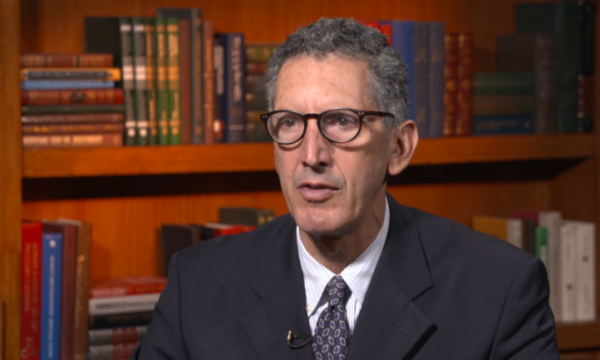
English

Gazeta Express
26/06/2022 14:37Author: Besnik Velija
Express: What is your comment on the current situation and the current level of dialogue between Kosovo and Serbia, and do you think it is a positive signal that Kosovo led by the Kurti Government agreed to push forward the energy agreement reached in 2015?
Edward P. Joseph: Absolutely. This is positive in a number of aspects. Before that is also a step forward. It is very important for the people of Kosovo that a solution is made to this issue, because there can be a stable supply of electricity when people pay for their bills.
This agreement was essential. Because without an agreement where consumers pay, and revenue goes to where they have to pay for energy, it cannot work that way, it cannot last forever.
It is also positive that it is Albin Kurti who agreed with this, even though he had opposed it in the past. This is a positive sign, that Albin Kurti can be not only ideological, but that in the end there can be a pragmatic approach,
But this agreement on energy, no matter how important, does not mean that dialogue can achieve the goal of mutual recognition, it cannot.
Miroslav Lajcak is capable and useful to have solutions for these types of issues, such as the issue of license plates where he is facing difficulties where he is also facing difficulties, but this framework, where Serbia has the lever, cannot lead to a final settlement of the reports, cannot lead to such a thing.
Express: Knowing Mr. Kurti, have you ever thought that Mr. Kurti will push forward an agreement within a Serbian company that will deal with energy bills in the north, which is “Elektrosever”?
Edward P. Joseph: Well, he agreed on [the deal], it really does not matter much what we think or what we did not think or not, he agreed with it. It is a positive step and shows the value of a good mediation …
Express: Because in the Assembly he said that “there will never be an Elektrosver”?
Edward P. Joseph: Well, that shows an ability to be pragmatic at times. His job is not to be dogmatic. This is the word we use. His job is to represent all citizens of Kosovo, all of them, Kosovo Albanians, Kosovo Serbs, and others. And that is his job. His job is not to be dogmatic.
Express: Do you see this as a sign that Mr. Kurti may change his position on the Association of Serbian Municipalities?
Edward P. Joseph: No, I would not jump to such a conclusion. But I say it again, it must be admitted that he can be pragmatic. The association, in my opinion, can only be chosen in the context of the final stages of the agreement. As a practical matter in any country, such an issue cannot be resolved when your neighbor refuses to recognize you and promotes separation. You cannot have a final settlement for Kosovo Serbs, as a form of autonomous organization, when the neighboring country promotes partition – or equivalent policies that lead to non-functionality of the state, which will eventually lead to partition.
Not only for Kosovo, but it does not work for any country, not even in Cyprus, it does not work in any country to say that initially we are guaranteeing some form of autonomy and maybe later we get the recognition. No.
Express: But the EU is putting pressure on Mr. Kurti. And they are saying that it is not okay to just say no, but that you should put something on the table …?
Edward P. Joseph: This part is formally true; it is formally correct. Because the issue can be discussed in some form, but it cannot be resolved in the absence of serious discussions about the final agreement. So, you can
Express: Do you think that the mediation from the EU is going well, while technical issues are being discussed and the issue of the final agreement is not being discussed, where the issue of the Association would also be discussed?
Edward P. Joseph: Look, dialogue is useful on these issues that you call technical. But dialogue cannot lead to a solution related to sovereignty issues, which is a comprehensive issue, the sovereignty of Kosovo. And the recognition of Kosovo’s sovereignty by Belgrade is not that the sovereignty of Kosovo is in question, it is the recognition of Kosovo’s sovereignty by Belgrade. Kosovo is a sovereign state. But it cannot be resolved through dialogue as it is constructed … because Serbia has no interest in resolving it. And the reason that Serbia has no interest is because it has leverage over Kosovo, because Kosovo is not recognized by five EU countries and 4 NATO countries …
The point is that as long as Serbia has leverage, there will be no step-by-step process that can lead to mutual recognition. It cannot happen step by step. They will not be interested until they no longer have the leverage. Once the sides are more equal in leverage, then the proper negotiation can take place – with mediation led by the EU and supported by the US. It is in that more equal – or at least, less unequal – context that true resolution of the issues, including the standing of the Kosovo Serbs can be achieved.
At the moment, Serbia has leverage – and simply keeping the status quo they are halting Kosovo’s progress towards NATO and the European Union. Why should they change such an attitude, given the advantage that they have from the non-recognizing countries?
Express: So, this means that Kosovo must make the first move?
Edward P. Joseph: What Kosovo needs to do is to fulfill its obligations to all citizens, including Kosovo Serb citizens, and this includes respecting and implementing the decision for the Deçani Monastery, and respecting
s, in terms of language, property, security. The government of Kosovo must respect these obligations, because they are the obligations of a sovereign state. They are not concessions or favors to anyone, least not Serbia.They are obligations to the Serb citizens of Kosovo, who are citizens here. The government of Kosovo is advancing the sovereignty of Kosovo by giving the property to the Monastery of Deçan. Conversely, government of KosovoExpress: Because Belgrade insists on the Association. Many times, insist that we should only discuss the Association?
Edward P. Joseph: No, they cannot just discuss the Association. I said that Kosovo can discuss this, but this can be resolved in the framework of a final recognition agreement.
Express: How do you see the way forward for Kosovo, while we have pressure from the EU that requires the implementation of the Association in accordance with the Constitution and on the other side is the request of Serbia. So, what should Mr. do? Kurti to find the way forward.
Edward P. Joseph: He must move forward by respecting the obligations that exist outside the framework of the dialogue. So, the property of the Monastery of Deçani is not part of the dialogue. It is a matter of respecting the Court’s decision. If you are a sovereign state, then your government respects the Constitutional Court. Serbia uses the term“so-called Kosovo”. If you are “so-called Kosovo” that means not acting as a state; Kosovo is a sovereign state and has a
Express: As you can see the attitude of President Osmani, she remained very calm and did not say that Kosovo should implement the decision for the Deçan Monastery and for the Association. Is she not taking a stand on these issues?
Edward P. Joseph: President Osmani in all public positions and actions, should always reflect the sovereignty Kosovo expressed in it Constitution of Kosovo, and this includes respecting and implementing the decisions of the Court
s.Express: Do you think it should be louder when it comes to these issues?
Edward P. Joseph: It should be very clear, without hesitation, that she as president respects the decisions of the Constitutional Court and understands the requirements of Kosovo’s sovereignty, which is the implementation of the decisions of the Constitutional Court, both when they like it and when they do not. This should be her attitude. Including the issue of the property of the Monastery of Deçan.
Express: You are against the idea of an Open Balkans. Why such an attitude, and seeing what is happening in Brussels, do you think that the idea of Rama and Vucic to create the Open Balkans initiative is legitimate, seeing what Brussels is doing and how a country like Bulgaria can block the whole integration process. Do you see it as logical?
Edward P. Jospeh: As for Bulgaria. I have written and I have a solution for this in my article which was published this week in the American outlet ‘Foreign Policy.’ It explains how President Biden can resolve the issue of Bulgaria. The US can affirm Macedonia’s identity, bilaterally, between the US and Northern Macedonia. Bulgaria can do nothing about it and this will prove and show for Bulgaria that they cannot succeed. This is the way the US, EU and NATO can succeed.
And for the Open Balkans. Very clear. It is a good idea to have a common regional market, it is a good idea to reduce barriers, it is not a good idea to do it outside the framework of the European Union, outside of values and rules. Not good. And the reason why it is not good. Because the economies in the region are not equal. Serbia is the largest economy in the Western Balkans, and of all the benefits in the Open Balkans, most will go to Serbia more than others. They will have more foreign investment, will be able to export goods of greater value. And this economic power translates into political power. And this is the problem when you have a state that has strong authoritarian tendencies, and this is wrong and it is dangerous. That is why the Open Balkans is wrong. This will lead to a stronger economic Serbia and it will be more likely to undermine the sovereignty of its neighbors, in particular Bosnia and Herzegovina, Montenegro and Kosovo. Therefore, it is wrong.
Express: But with or without “Open Balkan”, Kosovo imports millions from Serbia within months…
Edward P. Joseph: Look. It’s okay. You can trade with Serbia. But there can be no regional initiative where Serbia and its neighbors are outside of the wider EU and European legal, regulatory and values framework — a framework that is larger than the states themselves. It should not be left to the region alone. Because if left to the region alone, Serbia will dominate and this will increase tensions between states and increase Serbia’s prospect of undermining its neighbors’ sovereignty and there will be more conflict that reduces the whole goal of having a common market in the first place.
It’s important to understand that trade by itself does not create trust. What matters is the character of the state power, whether it is democratic or authoritarian. And we see it every day in Ukraine and Russia. Because Russia has been one of Ukraine’s main trading partners. Do you see trust between Russia and Ukraine? And you get this in the Balkans. Serbia and Montenegro have a lot of trade. Serbia is the main export and import partner for Montenegro, but Belgrade is not trusted. The opposite is the case; as in Kosovo, Montenegrins see the Vucic regime as trying to undermine their sovereignty.
.That trust and trade need to be within a broader framework, and that is under the broader EU framework.Express: But it is a reason that Rama and Vucic ..
Edward P. Joseph: I do not agree with the reason ..
Express: But what can you say about the Berlin Process?
Edward P. Joseph: Yes, they can. They can make the Berlin Process have nothing to do with Bulgaria. They can do the Berlin Process. And the US that is promoting the Open Balkans can support the Berlin Process.
Express: But there are four agreements that are not being implemented. Chancellor Merkel had repeatedly called on states to implement the agreements. And now we have seen Chancellor Scholz who came to Kosovo …
Edward P. Joseph: What is the difference there. Why you should implement the agreements within the Open Balkans and not within the framework of the Berlin Process. They should be the same agreements, trade, freedom of movement, employment, services. Why they can do this in the framework of the Open Balkans and not in the framework of the Berlin Process. They are the same. But they do so in a framework where the relationship between these states and mutual respect is required by a greater power. And this is done in the context of European values and the move towards a larger European Union market. And the US can support this process. If they do this for the Open Balkans, they can do the same for the Berlin Process.
Express: Why do you think the US has a supportive stance on the Open Balkans, because we have seen Mr. Escobar and Ambassador Mr. Hill who were part of the meeting in Northern Macedonia. Do you see this as an attempt by the US to control what is happening with Open Balkan, or do they just support it. Because there are fears that there could be Russian influence through Serbia. Do you see this as an attempt by the US to keep it under control, or do they just think it is a good way for regional cooperation?
Edward P. Joseph: I want to be very clear. One cannot speculate as to why the US does this. But I will respond to the argument that the Open Balkans will keep Russia out. The case is quite the opposite. Open Balkan increases the potential for Russian influence, because Russia’s satellite and ally is Serbia. So, if Serbia increases its power economically, Serbia’s influence will be greater and Russia’s influence will be greater. So, it makes no sense. And the other reason is that Russia is openly supporting the Open Balkans. It is not just Lavrov. But also “Sputnik Serbia” a number of titles. So, I’m not saying why the US. But it is not a good argument that Open Balkan keeps Russia out.
Express: But how can it be explained that Edi Rama supports the Open Balkans?
Edward P. Joseph: That’s explained in the article. People and states that fear the Open Balkans fear Serbia. Kosovo has good reasons to fear Serbia. Montenegro has good reasons. Bosniaks and Croats have reason to fear Serbia. For Albania does not exist, because Albania has no Serbs. And there are no territorial claims of Serbia in Albania. And when Aleksander Vucic targets Greater Serbia or the Serbian World, this does not affect Albania. It does not affect Albania. It affects Bosnia, Montenegro, Kosovo. It does not affect Northern Macedonia. They have issues with Bulgaria. This is very simple. Edi Rama does not face direct threats of aggression from Serbia. He therefore sees political and economic benefits for himself and his country. That’s why.
Express: Let’s move on to the last question. It is about the Specialized Chambers of Kosovo. Edi Rama has been in Kosovo in recent days and said that Albania will draft a Resolution that will be presented to the Council of Europe and will ask the Council of Europe to distance itself from the Dick Marty Report. He has also said that the White House should reflect on the Specialized Chambers, as he says there is a link between Russia and the Dick Marty Report?
Edward P. Joseph: I do not think this is the case. I think Dick Marty’s report succeeded from another report, which was Clint Willimason. So I think people should also look at Clint Williamson’s report and examine it. This is the real point. Those who have committed war crimes must be held accountable. That is the issue. Even if they are Serbs who have committed war crimes, even if they are Kosovars who have committed war crimes, even if they are others. Those who have committed war crimes must be held accountable, in fair trials, with evidence. The role and responsibility of the US and the EU is to ensure that there is a system and judges that achieve this. And that matters to Kosovo and Serbia and to war criminals roaming free in Serbia. And the US and the EU should address this, and also on issues related to American citizens, such as the case of the Bytyqi brothers who are American citizens, and who were killed after the war in Serbia, and not in Kosovo. So, the issue is justice for the victims. And Specialized Rooms are part of that. And it must be a comprehensive approach, ensuring that there is justice for Kosovo Albanian victims as well.
Express: Edi Rama has underlined that there can be no trial of the KLA, since it is said “joint criminal enterprise”. He said that everyone individually should be brought to justice. But you cannot judge the KLA, which were the people of Kosovo
Edward P. Joseph: I’m not sure if such a theory is used in The Hague. Are they using it?
Express: Yes, the prosecution uses a “joint criminal enterprise”
Edward P. Joseph: Edi Rama may have an opinion on this. But it is up to the prosecutor to prove it and the prosecutor has the burden of proof. It is okay for Edi Rama to have an opinion. But whether or not it was a “joint criminal enterprise” remains to be seen in court. And the prosecutor has the burden. They have to prove it was. And they have to bring evidence to show that. And the defense will be there to challenge that, and they can say what Edi Rama says, and then it is up to the Court to decide. Maybe the Judge will finally agree with Edi Rama, maybe not. But it must be based on evidence.
Të tjera nga rubrika
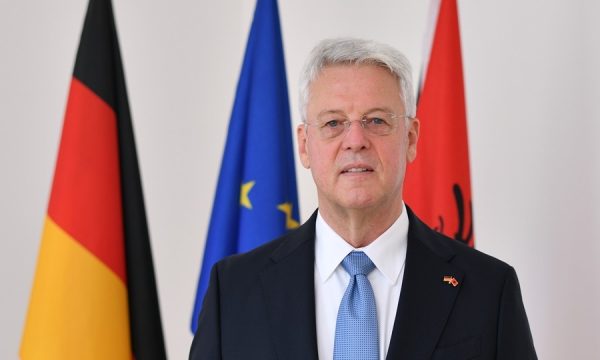
Kaosi në Kuvend, ambasadori gjerman në Tiranë: Parlamenti të plotësojë rolin e tij kushtetues
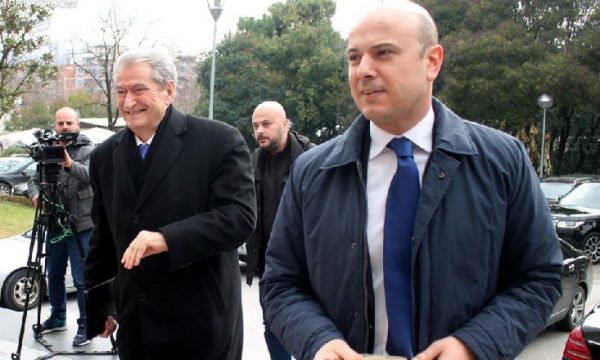
Akuzat/ Sa vite burg rrezikojnë Sali Berisha dhe dhëndri i tij Jamarbër Malltezi
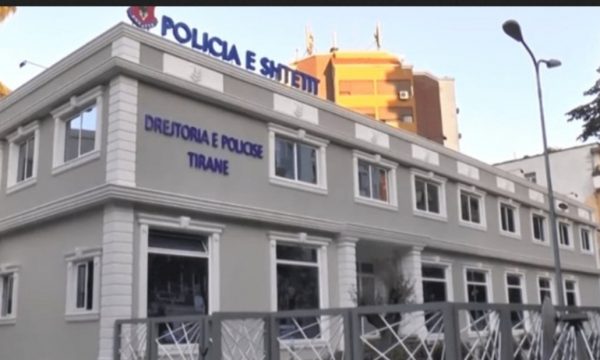
Tronditet Tirana! 37-vjeçarja vritet me thikë nga e motra pas një konflikti (EMRAT)
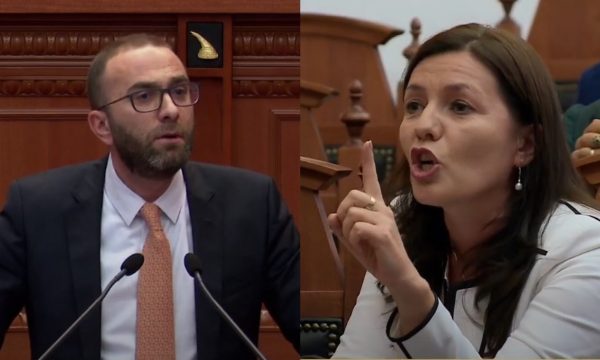
Debat i ashpër në Kuvend, Bardhi përplaset me Felajn: Familje hajdutësh, gore, mbylle gojën

Luizi i propozoi për martesë Kiarës, Olta: Nuk e kanë të gjatë

Aksident në aksin Lezhë-Milot, ambulanca përplaset me Ford-in, një i plagosur
Te fundit
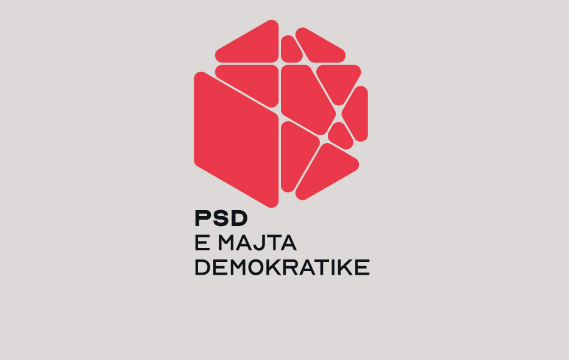
PSD mban konferencë sot para Prokurorisë Speciale
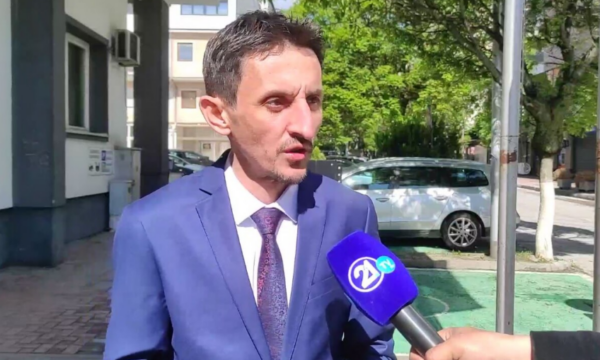
Dauti: Deri në ora 09:00, në Tetovë kanë votuar 2.300 qytetarë

Athina mbulohet nga pluhuri Saharian, qytetet greke marrin ngjyrë portokalli
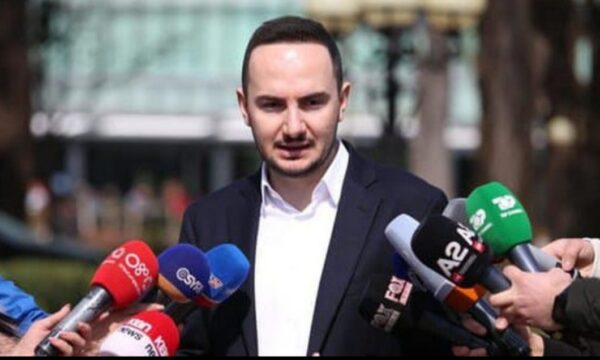
Shtyhet sërish seanca gjyqësore për dosjen “Babale”
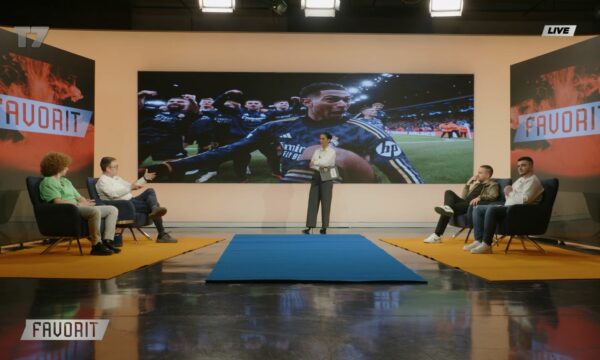
“Me do t’ima çka shesin sakëza para stadionit, Florentino Perezi ja u blen…”
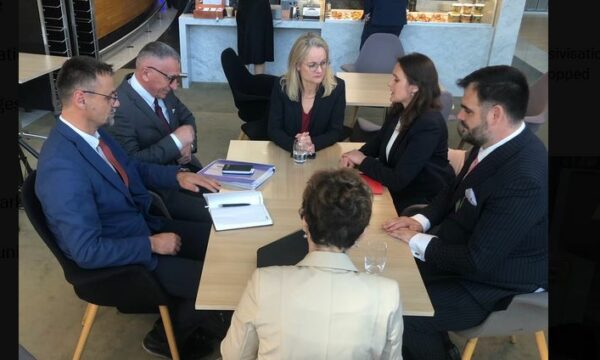
Von Cramon takohet me përfaqësuesit e Luginës së Preshevës: Pasivizimi i adresave nga Serbia duhet ndaluar menjëherë
✕
- Sport
 Edicioni
Edicioni
 t7 live
t7 live







